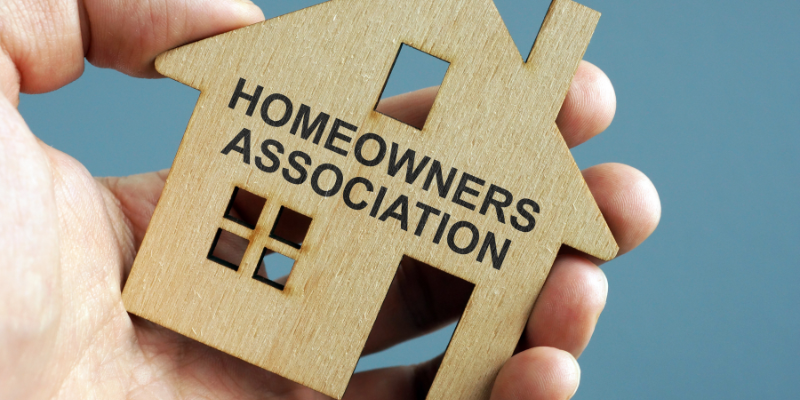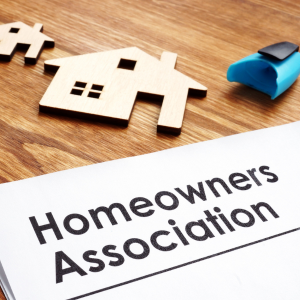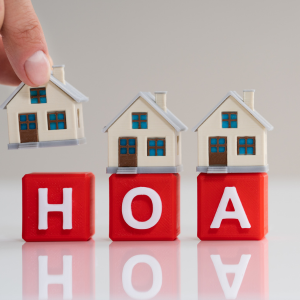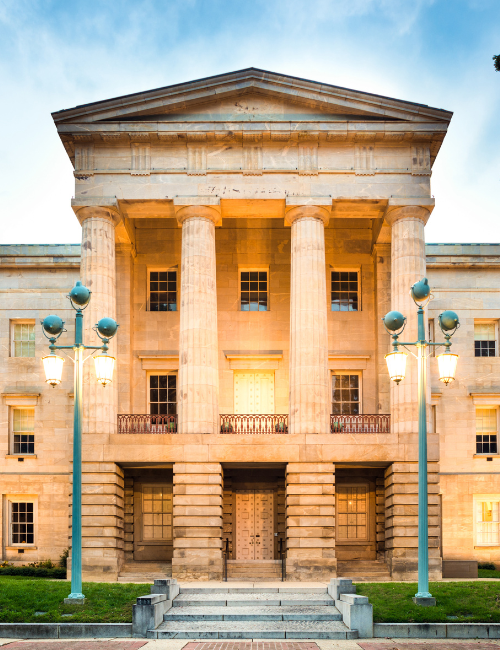
Exploring the Role of HOAs in the Charlotte Real Estate Market
Homeowners Associations (HOAs) have a big impact on the Charlotte real estate market. They change not only the prices of homes but also how the communities work together. In Charlotte, homeowner associations (HOAs) are in charge of keeping common areas in good shape, making sure that community rules are followed, and making sure that properties look nice.
People who live in the neighborhood can be charged by these groups’ assessments and fees to pay for services and improvements. Over time, this can make the property more valuable, but if you don’t pay these dues, bad things can happen, like the house going into foreclosure.
People who own homes in Charlotte and want to protect their investment should know the exact rules that govern HOA foreclosures. North Carolina law says that HOAs must follow certain steps before they can begin the foreclosure process, which helps protect homeowners in some ways.
This is to ensure that people who live in Charlotte communities run by HOAs are aware of their rights and duties and how a disagreement with their association could affect their money and safety.
Understanding the Financial Obligations of HOAs in NC Communities
In Charlotte, NC, people who want to keep their homes from going into foreclosure need to know about the Homeowners Associations (HOAs) and how much they cost. Homeowners associations (HOAs) in North Carolina are in charge of maintaining common areas, offering basic services, and making sure that folks follow the rules of the community.
People who live there must pay for these events as part of their neighborhood dues or assessments. Not paying these bills on time can cause a lot of trouble, such as late fees and interest charges.
If you don’t pay your HOA fees for a long time, they might put a lien on your home, which could cause it to be foreclosed on. You should know your state’s laws about your rights and responsibilities as a homeowner, as well as your HOA’s rules, conditions, and covenants (CC&Rs).
In Charlotte’s community association system, knowing these financial obligations can help you avoid arguments and keep you from losing your home because you forgot or didn’t understand what you had to do. Zack Buys Houses can help you stay informed and on track with your responsibilities.
The Impact of HOA Fees on Property Ownership in Charlotte
Charlotte homeowners need to know how their HOA fees affect their property to handle the complicated parts of homeownership. Homeowners associations (HOAs) are important for maintaining community standards and property values, but some people have trouble paying their dues.
These HOA fees in Charlotte cover many different things. They cover landscaping, security, and upkeep for shared amenities like pools and clubhouses. However, homeowners could get fined or lose their homes if they don’t pay on time.
It’s even more important to pay your HOA dues on time now that there’s a chance that your home will be taken away. Also, it’s important to know the exact terms of the HOA agreement. This is because each association may have its own rules about how to charge fees and uphold the rules.
Many people in Charlotte need to set aside money each month to cover these ongoing costs. This helps them manage their money and follow the rules of the community.
Rights of Homeowners Under North Carolina HOA Laws
People who live in North Carolina have important rights under HOA laws that protect their homes from being taken away by the bank. People who live in Charlotte can better understand the rules that govern their homeowners association with these rights.
HOAs have to give the right amount of notice before starting the foreclosure process, which is an important right. This notice needs to list any fees or rules that are past due and give homeowners a chance to work things out before going to court.
North Carolina law also says that HOAs must give homeowners a fair chance to make their case and argue against any fines or fees the association gives them. It’s also important to know that when HOAs go after foreclosure, they have to follow their governing documents and bylaws strictly per state law. This makes sure that everything is clear and equal.
In addition, homeowners can see information about their HOA accounts, which helps them keep track of any bills or disagreements. If people in Charlotte know these rights, they can protect themselves from unfair foreclosure actions by their homeowners associations. They can still follow the rules of the community, though.
Understanding HOA Foreclosure Laws in Charlotte, North Carolina

Charlotte, North Carolina homeowners need to know about HOA foreclosure laws to protect their investment and make sure they know what their rights and duties are. Homeowners associations (HOAs) in Charlotte can collect fees and enforce covenants. An HOA can take back a property if the dues aren’t paid.
The law in North Carolina says that HOAs have to do certain things before they can start the foreclosure process. As part of these steps, homeowners are given notices that their payments are past due and given chances to settle their debts. These laws are meant to keep homeowners safe by making sure the right steps are taken.
In Charlotte, people who live there should learn about these rules and, if needed, talk to a lawyer. Foreclosures can hurt credit scores and make it hard to keep a home. If homeowners know the specifics of their local laws, they can better handle disagreements with their HOA and stay out of trouble that could lead to them losing their home.
Common Reasons for HOA Foreclosures in North Carolina
In North Carolina, most notably in cities like Charlotte, homeowners associations (HOAs) play a big role in running neighborhoods. They may also be able to start the foreclosure process. An important reason why HOAs foreclose is that the fees and assessments have not been paid.
People who don’t pay their HOA fees on time could lose their homes if the association goes to court to get the money back. To add to this, fines for breaking community rules and laws can add up over time if they are not paid right away. This is another way to end up in foreclosure.
When the HOA charges extra fees for big projects or repairs, homeowners may not be ready financially, which can cause them to be late on their payments. People could get fined by the HOA if they don’t follow the rules for architecture or maintenance. This could put extra stress on their finances and even cause them to lose their home.
People in Charlotte and all over North Carolina need to know about these common causes if they want to keep their homes safe and understand the complicated rules for homeowner associations.
Key Differences Between Mortgage and HOA Foreclosures
People in Charlotte, North Carolina, need to know the main differences between HOA foreclosures and mortgage foreclosures of their homes. People can lose their homes in both types of foreclosure, but they are caused by different debts.
People who don’t pay their mortgage go to court to have the property taken away by the lender. A mortgage foreclosure is the name for this. The other type of foreclosure is a HOA foreclosure, which happens when a homeowner doesn’t pay their homeowners association dues or assessments.
There’s a chance that the HOA will take back the property if these fees aren’t paid. There are also different steps to take for each type of foreclosure. Mortgage foreclosures are usually governed by state laws and need closer court supervision. On the other hand, HOA foreclosures may go more quickly because the legal requirements are not as strict.
Also, the mortgage lender usually has the most weight among all liens when the house is being foreclosed on. A HOA lien, on the other hand, might not be as strong unless it is a “super lien.” Homeowners in Charlotte need to know these differences in the law in order to protect their homes and deal with any money problems in the best way possible.
Legal Steps for Homeowners Facing HOA Foreclosure in NC
Some people in Charlotte, NC, may have to deal with HOA foreclosure. They should go to court to protect their homes. First, you should carefully read the homeowners association’s governing documents and covenants to find out the exact rules about payments and the foreclosure process.
When homeowners don’t pay their HOA fees, they should talk to their board or management company about it and look into different payment plans or settlements. Talking to a real estate lawyer with experience in North Carolina property law can help you understand the state’s foreclosure laws and the tools homeowners have to fight them.
If a lien has been put on your property because of back taxes, you should file a response right away. This can help stop the foreclosure process. People who own homes can also try to work out an alternative solution with their HOA, such as through mediation or arbitration.
Chapter 47F of the North Carolina General Statutes talks about planned community acts like HOA foreclosures. Homeowners can learn important legal information about their rights and choices during these processes by reading this chapter.
How to Prevent an HOA From Foreclosing on Your Property
To keep your Charlotte, NC home from going into foreclosure by your homeowner association, you need to know the local laws about foreclosure and do what you need to do as a homeowner association member. First, read the bylaws and covenants carefully to find out what your rights and responsibilities are as a member of your HOA.
You should pay all of your fees and assessments on time so that you don’t fall behind. One main reason why HOAs start the foreclosure process is that people don’t pay their bills on time. Talk to the HOA board right away if you can’t pay your fees. They can help you set up a payment plan or temporarily lower your payments.
Being present at HOA meetings is also a good way to learn about any changes to the rules or fees that might affect your debts. Also, make sure you keep good records of all your interactions and dealings with the HOA in case there are any disagreements.
If you’re facing legal challenges, consulting a lawyer experienced in North Carolina real estate and HOA law can provide tailored advice to protect your home from foreclosure threats and help you sell your Gastonia, NC, house faster, including in nearby areas.
Financial Strategies to Avoid Foreclosure by an HOA
People who live in Charlotte, NC, need to be smart with their money if they want to keep their homes from being taken away by HOA foreclosure laws that are hard to understand. Keep the lines of communication open with the homeowners association (HOA). This way, you can work out payment plans or lower fees that make the HOA dues easier to handle.
You should pay your HOA fees after you pay your mortgage, utilities, and other bills. Setting aside money in your budget just for HOA fees will help you stay on top of your payments and avoid falling behind.
If you want more personalized help, you can also get professional financial advice from a counselor who knows the HOA rules in North Carolina. You can get the money you need to pay off your bills and keep your home from going into foreclosure by refinancing or getting a home equity loan.
Reading the rules of your HOA and knowing your rights and duties will help you make smart choices and stay out of trouble for not paying your dues. Homeowners in Charlotte, NC, can better manage their money and keep their homes from being taken back by an HOA by taking steps like these and reaching out to Zack Buys Houses for guidance and support.
How to Negotiate with an HOA to Avoid Foreclosure Risks
If you want to keep your Charlotte, NC home from going into foreclosure, you need to be proactive and well-informed when you talk to a Homeowners Association (HOA). First, carefully read the HOA’s rules and regulations. The rules, laws, and payment obligations that might apply to you are written down.
If you can’t pay these bills, you shouldn’t be able to keep anything from the HOA board or management company. Call right away to talk about what’s going on and look into what can be done, like a payment plan or a short-term drop in your dues.
People are more likely to work with you if you show honesty. Also, you should know North Carolina’s specific foreclosure laws. These laws explain how HOAs can begin the foreclosure process when assessments are not paid.
A lawyer or mediator who has dealt with HOA disputes before can tell you a lot about your rights and options. Homeowners can usually reach a friendly agreement with the help of the homeowners association (HOA) and community resources that keep them in line with community rules and prevent them from going into foreclosure.
Steps to Take If You Receive a Notice of Default From Your HOA
This is how you know if your Charlotte, NC, Homeowners Association (HOA) has sent you a notice of default. You need to act quickly to save your home from going into foreclosure. Take your time reading the notice to make sure you know why it was sent and how much you owe.
Talk to your HOA right away about possible payment plans or to make a repayment plan that fits your budget. It’s helpful to keep track of all the things you say to the HOA for other times.
A lawyer who knows North Carolina real estate or HOA laws can help you figure out what your options are and what rights you have. They can help you understand tough legal terms and make sure you do everything you need to stop the foreclosure.
Also, check to see if the notice has any spelling or grammar errors that could be used against it. The foreclosure laws and due dates in your area are very important to know because they tell you how long you have before things get worse.
You can keep your home from going through the HOA’s foreclosure process if you respond to the notice of default on time and with the right information.
Protecting Your Home Equity From Potential HOA Actions

It is important to know the local HOA foreclosure laws in Charlotte, NC, and take steps to protect your investment. This will keep your home equity safe from possible HOA actions. The covenants, conditions, and restrictions (CC&Rs) are the governing documents for your homeowners’ association. As a homeowner, you should know the exact rules that are written in them. When it comes to fees and assessments, these tell you what you can and can’t do.
Pay all of your dues and any special assessments that the HOA asks for on time to keep your home from getting liens. Another important thing is to talk to people. If you have a problem or disagreement with the HOA, you should talk to them about it right away so it doesn’t escalate into a lawsuit that could hurt your home’s value.
Homeowners can also gain more power by learning about North Carolina’s HOA foreclosure laws. These laws protect homeowners by requiring notice periods before the foreclosure process can begin. You can talk to a lawyer if you need to learn how to protect yourself against false claims or bad behavior by an HOA that could make your home less valuable.
If Charlotte homeowners stay informed and take preventative steps, they can keep their home equity safe from bad HOA actions.
Navigating the Legal Process of HOA Disputes in North Carolina
In North Carolina’s legal system, you need to know all of the state’s laws and rules about homeowner associations in order to handle HOA disputes well. People in Charlotte, NC, need to pay extra attention to HOA rules so that their homes don’t stop being owned by the government.
The North Carolina Planned Community Act is something that homeowners should know about. This law tells homeowners and homeowners associations what they can and can’t do. Follow the right legal steps when you don’t agree with someone. First, you should read the association’s governing documents, which may include covenants, conditions, and restrictions (CC&Rs).
When you’re honest with the HOA board, you can often solve problems before they get worse. But if disagreements don’t go away, the community’s governing documents may say that mediation or arbitration is needed.
People who own homes in North Carolina should also talk to an attorney who knows HOA law to make sure their rights are protected during the process. If homeowners know these legal facts, they can better handle disagreements and stop their HOA from possibly taking foreclosure actions.
How Legal Counsel Can Assist During an HOA Dispute
It can be hard to understand Charlotte, NC’s HOA foreclosure laws on your own, but if you’re having trouble with your HOA, hiring a lawyer can really help. A lawyer who specializes in homeowner association disputes has a lot of experience and knows the complicated laws that govern HOAs. They can also give you advice that is right for your situation.
One of the things a lawyer can do is help you understand the CC&Rs that govern your community and make sure you know all of your rights and responsibilities. For you, they can also talk to the HOA and try to find a solution that works for everyone. If you need to, they can also go to court for you.
If a lawyer looks into the specifics of the threat of foreclosure, they may be able to find defenses or mistakes in the HOA’s processes that could stop the foreclosure. Lawyers are also very familiar with North Carolina’s laws that protect homeowners and tell people how to collect debts. This makes them a strong defense against unfair practices.
You can be sure that all of your interactions with the HOA will be handled professionally if you hire an experienced lawyer. Plus, it’ll help keep your home safe from unfair foreclosure actions while you wait for things to get better. We buy Huntersville, NC, homes and surrounding areas fast and easy, so you’ve got a solid option when you need it most.
Exploring Alternative Dispute Resolution Methods with HOAs
Navigating the complexities of HOA foreclosure laws in Charlotte, NC, can be tough, but exploring alternative dispute resolution methods offers a pathway to resolving conflicts effectively. Mediation and arbitration are two prominent approaches that homeowners and HOAs utilize to address disputes before escalating to foreclosure.
Mediation involves a neutral third party who facilitates discussions between the homeowner and the HOA, aiming to reach a mutually acceptable solution. This method is often less adversarial and more collaborative, allowing both parties to express their concerns and work towards an agreement that prevents costly legal battles.
Arbitration, on the other hand, involves an arbitrator who listens to both sides before making a binding decision. While faster than traditional litigation, arbitration still provides a formal structure for resolving disputes related to HOA fees or covenant violations.
In Charlotte, engaging in these alternative dispute resolution methods not only helps protect homeowners from foreclosure but also preserves community harmony by fostering better communication and understanding between residents and their homeowner associations.
Can an HOA Foreclose on a Home in North Carolina?
In North Carolina, homeowners’ associations (HOAs) have the legal authority to initiate foreclosure proceedings under certain circumstances. Understanding HOA foreclosure laws in Charlotte, NC, is crucial for homeowners aiming to protect their homes.
An HOA can foreclose on a home if the homeowner fails to pay assessments or dues as outlined in the community’s governing documents. Typically, this process involves the HOA placing a lien on the property after a specified period of delinquency.
Homeowners should be aware that before an HOA can proceed with foreclosure, it must comply with North Carolina state laws and provide adequate notice to the homeowner. It is essential for property owners in Charlotte to understand their rights and responsibilities under these laws and seek legal advice if they are facing potential foreclosure by an HOA.
By staying informed about HOA regulations and addressing any payment issues promptly, homeowners can better safeguard their property from foreclosure actions initiated by their association.
What Happens If You Don’t Pay HOA Fees in NC?
In North Carolina, failure to pay Homeowners Association (HOA) fees can lead to serious consequences, especially under the HOA foreclosure laws applicable in Charlotte. When homeowners neglect their HOA dues, the association may initiate a series of actions to recover the unpaid assessments.
Initially, the HOA might impose late fees and interest on the outstanding amount. If the delinquency persists, the association could place a lien on your property, a legal claim that must be settled before selling or refinancing the home.
In Charlotte and throughout North Carolina, if the debt remains unpaid after these initial steps, the HOA can foreclose on your home through a judicial foreclosure process. This means they can take legal action in court to sell your property and recover what you owe.
Charlotte homeowners must understand these potential outcomes and seek ways to promptly resolve any payment issues with their HOA to protect their homes from foreclosure risks under state laws.
Can an HOA Foreclose Your House?

Homeowners Associations (HOAs) in Charlotte, NC, have the legal authority to initiate foreclosure proceedings under certain conditions. Understanding HOA foreclosure laws is crucial for homeowners who want to protect their property and financial stability.
In Charlotte, an HOA can foreclose on a home if the homeowner fails to pay association dues or assessments. The process typically begins with the HOA placing a lien on the property for unpaid dues.
If these debts remain unresolved, the HOA may proceed with judicial foreclosure, allowing it to sell the home at auction to recover unpaid fees. However, HOAs must follow specific legal procedures outlined in North Carolina state law before foreclosure can occur.
This includes providing proper notice to the homeowner and allowing them an opportunity to pay off any outstanding debts. To avoid foreclosure risks, homeowners should be aware of their rights and responsibilities under their specific HOA agreement and state law.
Consulting with a legal expert knowledgeable in North Carolina’s HOA regulations can provide further guidance on protecting one’s home from potential foreclosure by an HOA.
How Much Power Does an HOA Have in NC?
Homeowners’ Associations (HOAs) in North Carolina, including those in Charlotte, possess significant power to enforce community rules and regulations. Under North Carolina law, HOAs can impose fines, place liens on properties, and even initiate foreclosure proceedings if homeowners fail to pay dues or violate covenants.
It is crucial for homeowners to understand that while HOAs play a vital role in maintaining property values and community standards, their powers are not limitless. In Charlotte, NC, HOAs must adhere to state laws governing their actions, including providing proper notice before taking legal action like foreclosure.
Homeowners should be aware of their rights and responsibilities under their specific HOA agreements and seek legal counsel if they face potential foreclosure due to unpaid assessments or disputes with the association. Understanding the extent of an HOA’s power can help protect your home from unnecessary legal complications.
Sell your house fast for cash with Zack Buys Houses. We buy homes in any condition, with no repairs, agent fees, or surprises. We offer a fair cash price, handle all the paperwork, and close quickly on your timeline. Call 704-769-0141 today for a free, no-obligation cash offer.
Helpful North Carolina Blog Articles
- Selling Your Investment Property in North Carolina
- Selling Your North Carolina Home With An Existing Mortgage
- How To Successfully Sell A House With Tenants In North Carolina
- Appraisal Repairs in NC: How They Impact Your Home Sale
- Documents Required to Sell a House in North Carolina
- Closing Costs Without a Realtor in North Carolina
- Filing A Quitclaim Deed For Real Estate In North Carolina
- Real Estate Division In North Carolina Divorce Cases
- Selling Your North Carolina Home Without A Real Estate Agent
- Who Pays the HOA Fees at Closing in North Carolina
- How to Sell a Condemned House in North Carolina
- How to Sell a House As-Is in North Carolina
- Does a Seller Pay Closing Costs in North Carolina
- Can You Sell a House That Failed Inspection in North Carolina
- Lease Options to Sell Your North Carolina Home

